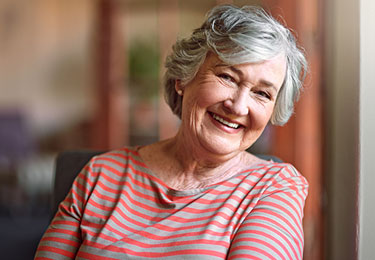 A hip fracture can be quite a debilitating injury. It may leave you bedridden and dependent on others for most activities of daily living. A higher risk for developing a hip fracture occurs in the following categories:
A hip fracture can be quite a debilitating injury. It may leave you bedridden and dependent on others for most activities of daily living. A higher risk for developing a hip fracture occurs in the following categories:
- Elderly: Hip fractures are a common occurrence in elderly people who sustain a minor fall. This is because bone density starts decreasing after the age of 25-30 and by the time most people have reached their 50s and 60s, their bones are quite brittle.
- Women: Women experience significant bone loss after menopause because of the dramatic changes in their hormones leaving them more prone to hip fractures. About 75% of all hip fractures occur in women.
- Osteoporosis: Those with this disease have bones that are extremely porous and can easily fracture with minor trauma.
- Medications: Those who take blood pressure medication, heart pills, diuretics, muscle relaxers, or tranquilizers have a higher risk of fracture.
- Alcoholics: Heavy drinking slows down reflexes, alters balance, and encourages risky behavior – all which increases your chances of falling and breaking your bones.
- Height: Being tall appears to increase a risk for sustaining a hip fracture.
Statistics indicate that fall-related injuries are the leading cause of death in Americans above the age of 65. Less than half the people who survive a hip fracture are able to regain previous level of function. Fortunately, there are several things you can do to prevent falls and hip fractures.
Outdoor Safety:
- When the weather is bad, use a cane or a walker for added stability
- Use footwear that provides proper traction such as those with rubber soles
- Observe the floor surfaces carefully. Try to avoid highly polished surfaces to decrease your risk of slipping and stay on carpeted surfaces as far as possible
- Be cautious at curbs, check their height and incline before stepping off or on them
Indoor safety:
- Keep your floor clutter free
- Be mindful of differences in room levels
- Avoid wearing socks which increases your chances of slipping
- Keep the stairways well lit
- Use carpets that have a skid proof backing
- Install grab bars and rubber mats in your bathroom and toilet
- Keep a flashlight beside your bed so you never have to get up in the dark
In addition to the above-mentioned safety tips, healthy eating and regular exercise will help keep you fit and flexible enough to get what you want out of life without compromising on your safety.





